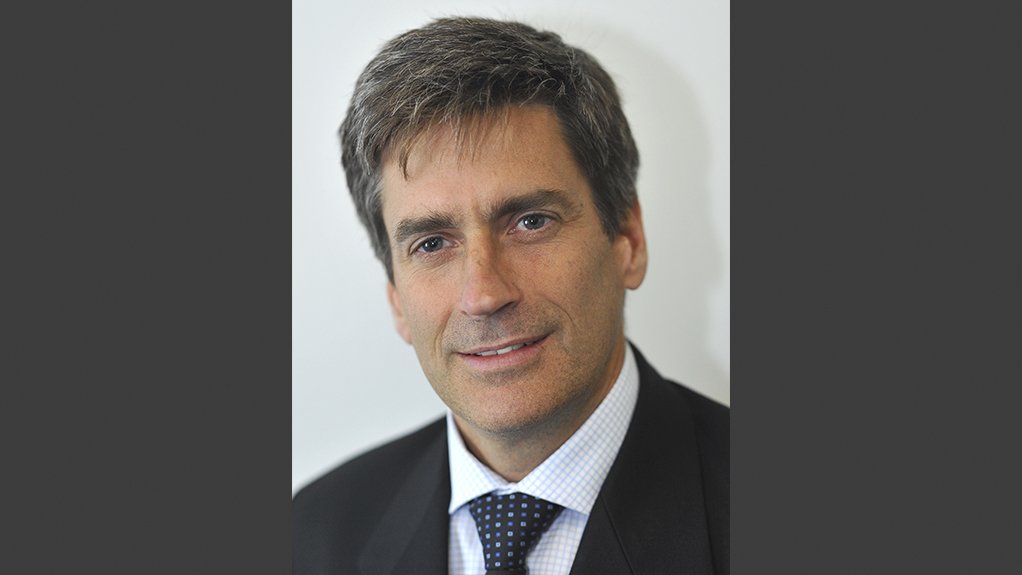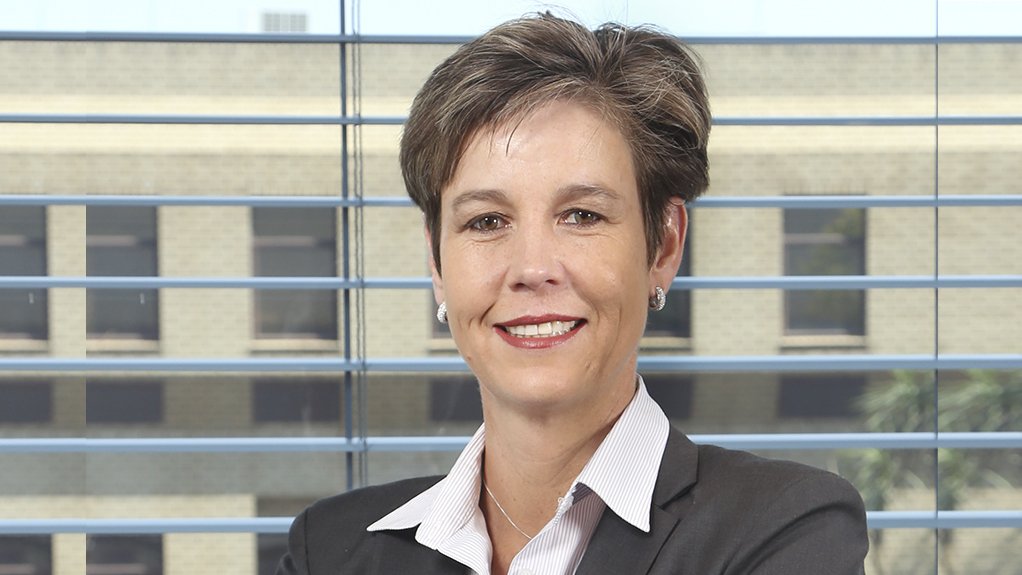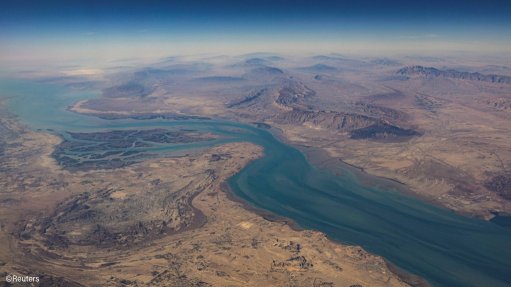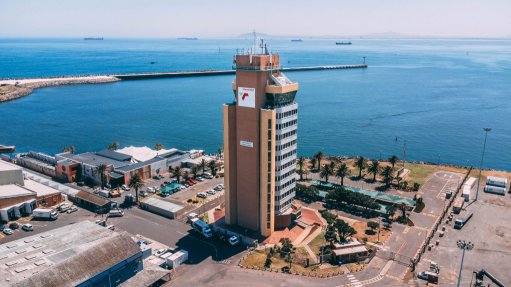Opinion: Combatting climate change with green energy solutions for Africa
In this opinion article, Standard Bank head of sustainable finance, wholesale clients Greg Fyfe and head of power, wholesale clients Rentia van Tonder write that Africa has no choice but to join the global drive toward limiting greenhouse-gas emissions; however, the continent must facilitate a just transition for the communities and individual workers who depend on coal and other fossil fuels for their livelihoods, and in a manner that recognises the deep energy poverty across African economies.
In time for deliberation at the twenty-sixth Conference of Parties (COP26) in Glasgow, Scotland, in November, the Intergovernmental Panel on Climate Change (IPCC) recently released a concerning report, noting that climate change was widespread, rapid and intensifying. It is undeniable that the climate crisis is upon us and the world is getting hotter – the past decade being the hottest in the recorded period since 1850.
Human-caused emissions have now locked the earth into a 1.5 °C temperature increase and we have a clearer picture of what our future looks like if we do not act quickly to curtail these emissions. Importantly, it is not too late. The report highlights that temperature increases would stabilise over a few decades if we can get to zero emissions. Effectively, we are in a race against time to limit the number of irreversible changes.
Although we all have a role to play, many argue that this places an unfair burden on Africa. Africa makes a very small contribution to global emissions (under 4%) and while we haven’t caused the problem, we will be massively affected by it. Most African countries are already seeing the effects of climate change in weather patterns and events such as tropical cyclones, droughts and floods. If we continue on the path we are on, large parts of Africa may become uninhabitable. Adding to this burden, we are also not particularly well equipped to adapt to these changes and lack the wherewithal to handle successive climate change emergencies.
Africa has no choice but to join the global drive toward limiting carbon dioxide and other greenhouse gas emissions, however this action must be considered within the context of Africa’s just transition toward a low-carbon economy. We must also facilitate a just transition for the communities and individual workers who currently depend on coal and other fossil fuels for their livelihoods, and in a manner that recognises the deep energy poverty across African economies.
THE CASE FOR RENEWABLES
Renewable energy is vital to meeting global carbon reduction goals. Historically, renewables were criticised as being too expensive; however, we have seen a significant decline in their cost due in large to advancements in technology making renewables more efficient and affordable.
A further benefit, especially from an African perspective, is that renewables allow for a more modular type of technology to be rolled out in a much shorter time frame. For example, construction times are much longer and far more complex when it comes to coal-fired power stations. Renewables are more fit for purpose, flexible, modular, and you have the option to add more capacity if required.
However, challenges exist that are inhibiting the rollout of renewable energy projects across the continent and require urgent government attention through policy considerations. Some challenges are regulatory in nature, while others relate to financing and technology. African countries need enabling and conducive regulatory environments for investment in the development of renewable energy. Governments also need to provide policy certainty to ensure bankable projects are brought to market. At the moment we see a wave of global funding ready to invest in renewables, but we lack bankable projects in scale. The solution lies in sector reform initiatives and developing policy frameworks that enable rapid market growth in both centralised and decentralised energy.
Looking at decentralised energy, we are seeing that more and more customers are driven by two key factors. The one is sustainable and reliable electricity supply. They cannot afford to have intermittent electricity supply and a grid-tied, captive power solution often makes more sense.
The second driver is to be able to manage affordability and predictability of electricity costs. As the price of renewables comes down, companies are questioning why they should continue buying power from a utility, especially where significant price increases have been evident and expected to continue.
Customers are also becoming more sensitive to buy power from utilities whose generation capacity is mainly coal, which does not necessarily align with their environmental, social and governance (ESG) objectives. This is an important driver we are seeing with corporates, especially in the mining and industrial sectors in South Africa, with international shareholders that are sensitive to ESG objectives and goals.
LEADING SUSTAINABLE FINANCE SOLUTIONS
Standard Bank Group is committed to facilitating African economies’ access to energy and other critical infrastructure essential for sustainable and inclusive economic growth and human development, while aligning with the objectives of the Paris Agreement (net zero by 2050). As Africa’s largest banking group by assets, we recognise the impact of our business activities on the societies, economies and environments in which we operate. We also understand that we can make a significant positive impact because of our scale advantage.
To this end, we established a dedicated sustainable finance business unit in 2019. The unit is responsible for partnering with our business areas to better serve our clients by developing and delivering innovative and bespoke green, social and sustainability-linked products and services, helping our clients and investors achieve their own social and environmental ambitions. Renewable energy is a core component of our green financing strategy and activity.
As the African leader in green bond issuances, we arranged Africa’s largest green bond and South Africa’s first offshore green bond in 2020. The capital raised through this ten-year, $200-million facility will be used to finance eligible green assets including renewable energy and energy efficiency assets, aligned to our Sustainable Bond Framework.
We also received the inaugural Global Finance award for Best Global Investment Bank for Sustainable Finance, an endorsement of our leadership in this critical driver of sustainable growth on the continent.
Standard Bank Group fully supports the expansion of affordable renewable energy solutions across Africa and our energy finance portfolio is increasingly focused on renewable energy projects. Since 2012, we have financed the construction of new power projects to the value of $2.77-billion in Africa. 86% of this funding ($2.38-billion) was for renewable energy and we have not financed any new coal-fired power stations since 2009.
As we accelerate toward our 2025 ambition of becoming a client-centric, digitally enabled platform business, we are creating innovative solutions and new partnerships to serve our clients better and grow our revenues. Deepening digitisation across the continent is opening new doors and to help address the energy challenge, we initiated PowerPulse, an innovative digital offering, designed and built to transform the way we deliver and consume energy, and which can be accessed via our OneHub platform. Through PowerPulse we help clients source alternative means of energy production with the support of vetted solution providers. This platform guides our clients in making the right technical decisions and selecting the right partners. This is then aligned to the most appropriate legal and funding solutions, all within the complex regulatory and approval environment.
Africa is rich in untapped renewables – solar, wind, hydropower and geothermal. The African continent also has the potential for economically viable natural carbon sinks. All these factors position Africa to be a key player in the low-carbon economy. However, the deployment of renewable energy on both a centralised or decentralised basis requires significant funding and initial capital. For Africa to combat climate change through green energy solutions, governments and their stakeholders must work with urgency to develop suitable policy frameworks and create an enabling environment for investments in renewables.
Article Enquiry
Email Article
Save Article
Feedback
To advertise email advertising@creamermedia.co.za or click here
Announcements
What's On
Subscribe to improve your user experience...
Option 1 (equivalent of R125 a month):
Receive a weekly copy of Creamer Media's Engineering News & Mining Weekly magazine
(print copy for those in South Africa and e-magazine for those outside of South Africa)
Receive daily email newsletters
Access to full search results
Access archive of magazine back copies
Access to Projects in Progress
Access to ONE Research Report of your choice in PDF format
Option 2 (equivalent of R375 a month):
All benefits from Option 1
PLUS
Access to Creamer Media's Research Channel Africa for ALL Research Reports, in PDF format, on various industrial and mining sectors
including Electricity; Water; Energy Transition; Hydrogen; Roads, Rail and Ports; Coal; Gold; Platinum; Battery Metals; etc.
Already a subscriber?
Forgotten your password?
Receive weekly copy of Creamer Media's Engineering News & Mining Weekly magazine (print copy for those in South Africa and e-magazine for those outside of South Africa)
➕
Recieve daily email newsletters
➕
Access to full search results
➕
Access archive of magazine back copies
➕
Access to Projects in Progress
➕
Access to ONE Research Report of your choice in PDF format
RESEARCH CHANNEL AFRICA
R4500 (equivalent of R375 a month)
SUBSCRIBEAll benefits from Option 1
➕
Access to Creamer Media's Research Channel Africa for ALL Research Reports on various industrial and mining sectors, in PDF format, including on:
Electricity
➕
Water
➕
Energy Transition
➕
Hydrogen
➕
Roads, Rail and Ports
➕
Coal
➕
Gold
➕
Platinum
➕
Battery Metals
➕
etc.
Receive all benefits from Option 1 or Option 2 delivered to numerous people at your company
➕
Multiple User names and Passwords for simultaneous log-ins
➕
Intranet integration access to all in your organisation






















